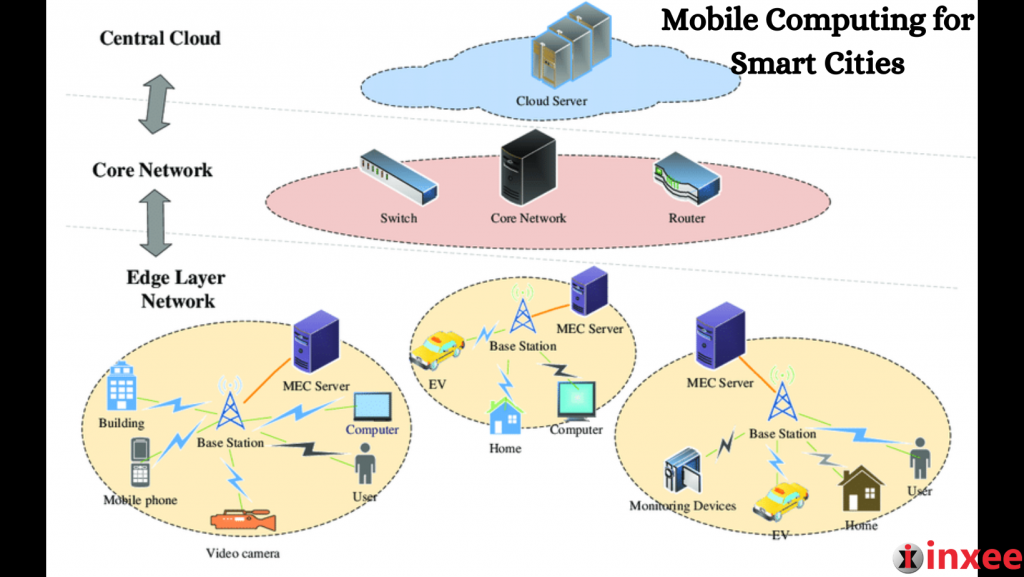Mobile Computing for Smart Cities
Mobile computing plays a pivotal role in the development and advancement of smart cities, enabling connectivity, data collection, and real-time information dissemination. Here are some key aspects of mobile computing in smart cities:
- Connectivity: Mobile devices, such as smartphones and tablets, provide ubiquitous connectivity, allowing citizens to access information and services anytime, anywhere. With mobile connectivity, individuals can interact with various smart city applications, access public services, and receive real-time updates on transportation, weather, and events.
- Data Collection and Sensing: Mobile devices are equipped with various sensors, such as GPS, accelerometer, and camera, enabling them to collect data about the city’s environment, infrastructure, and citizens. This data can be leveraged to monitor air quality, traffic patterns, noise levels, and other parameters critical for smart city planning and management.
- Citizen Engagement: Mobile applications empower citizens to actively participate in shaping their cities. Through mobile platforms, citizens can provide feedback, report issues, and engage in crowd-sourced initiatives for urban improvement. Mobile computing facilitates citizen-centric governance and encourages active collaboration between government authorities and residents.
- Enhanced Services: Mobile computing enables the delivery of personalized and context-aware services to citizens. Through location-based services, mobile applications can offer tailored recommendations, real-time public transportation updates, parking availability information, and other services that enhance convenience and efficiency in daily life.
- Mobile Payments and Transactions: Mobile computing facilitates seamless digital transactions, enabling citizens to make mobile payments for public transportation, parking fees, utility bills, and other services. Mobile wallets and payment apps streamline financial transactions, reducing the need for physical cash and enhancing the efficiency of monetary exchanges in smart cities.
To leverage the potential of mobile computing in smart cities, infrastructure should support robust mobile networks, promote the development of citizen-centric applications, and ensure data privacy and security. By embracing mobile computing, smart cities can enhance citizen engagement, improve service delivery, and create a connected and inclusive urban environment.










Leave a Reply